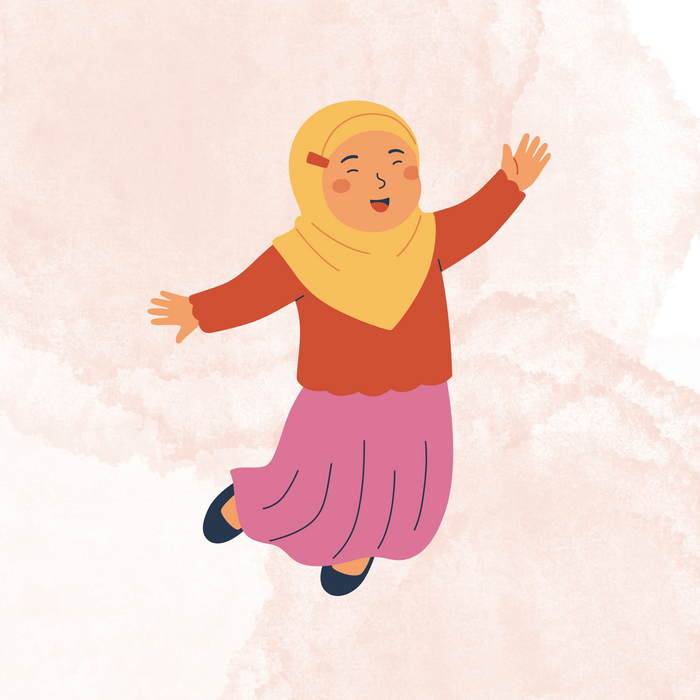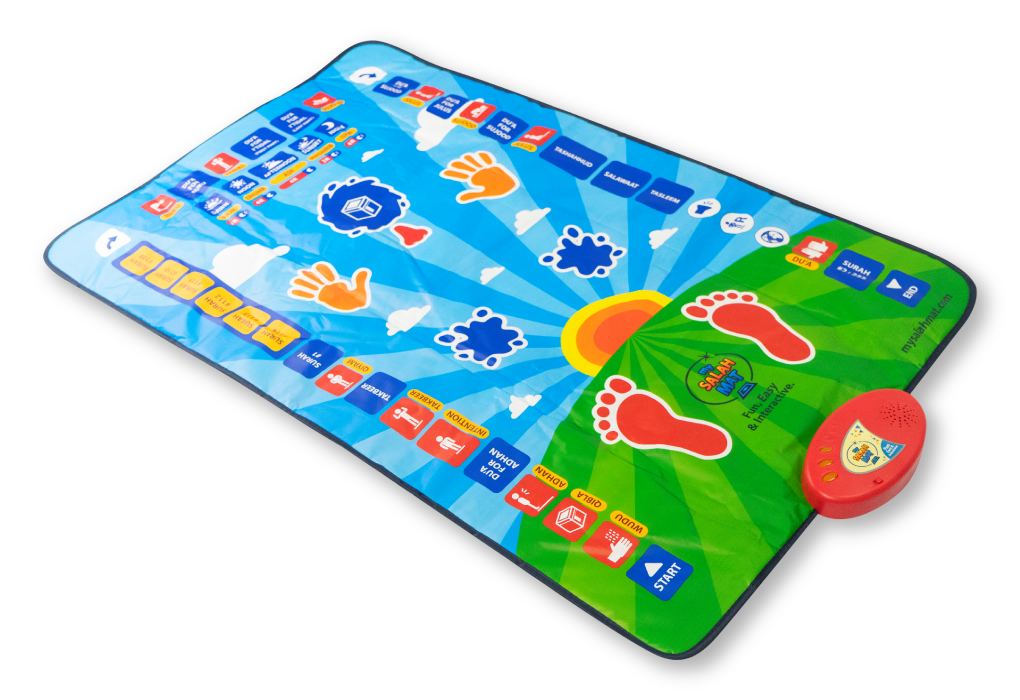6 Ways to Cultivate Haya in Your Child: A Parent’s Guide

As parents, our goal is to raise children who embody the values of Islam, both inwardly and outwardly. One of the most beautiful qualities we can help nurture in them is haya’ (modesty). Prophet Muhammad (ﷺ) said, “Every religion has its distinctive trait, and the distinctive trait of Islam is haya’.” Modesty is not just a matter of dress, but it encompasses our actions, thoughts, and interactions with others. By instilling these values early on, we can help shape children who carry a sense of modesty and dignity throughout their lives. Masha'Allah, it’s a gift to nurture this quality. Here are six ways we can help foster haya’ in our children.
1. Teach Them to Be More Mindful of Allah’s Gaze Than That of People
It’s important for our children to understand that Allah is always watching, even when nobody else is around. Teach your child that the most important opinion is that of Allah (SWT), and His gaze is more significant than the gaze of people. This understanding will naturally nurture a sense of modesty in their actions. Remind them gently, without instilling fear, that Allah sees all things, and that what pleases Him is ultimately what matters most.
2. Teach Them to Lower Their Gaze and Practice Hijab
Modesty in Islam is multifaceted, and lowering the gaze is an essential aspect. As parents, we need to teach our children to be mindful of where their eyes dwell, avoiding inappropriate sights or actions that could affect their hearts. Hijab is not only about covering the body, but it’s also about protecting the eyes and hearts from anything that might harm their modesty. Encourage them with words of wisdom from the Qur'an and the Sunnah, showing them the beauty of practicing hijab and maintaining the purity of their gaze.
3. Teach Them to Remember Allah’s Favors
Gratitude is a powerful catalyst for modesty. By consistently reminding our children of the innumerable blessings Allah has bestowed upon them, we help them develop an inner sense of humility. Children who recognize Allah’s favors are more likely to cultivate healthy shame before their Creator, being mindful not to misuse His blessings. Simple conversations about gratitude can go a long way in helping children be mindful of their actions, Masha'Allah.
4. Keep Good Company
Surrounding your child with people who embody the qualities of haya’ is essential. Children naturally absorb the characteristics of those around them, so keeping them in the company of modest, kind, and dignified people will influence their behavior positively. Let them interact with peers who have good manners, and as a family, seek the company of families who prioritize Islamic values. The Prophet (ﷺ) emphasized the importance of good companionship, reminding us that we are on the religion of our friends.
5. Treasure Honesty in Your Household
Haya’ and honesty go hand in hand. Truthfulness leads to righteousness, and righteousness leads to Paradise. Teach your children to always speak the truth, even in small matters. Avoid ‘little’ lies in the household, as these can escalate into bigger ones, damaging the sense of integrity. When children grow up in a home where honesty is treasured, they are more likely to be transparent in their actions and words.
6. Practice It!
Children are keen observers and often model the behavior they see. The best way to teach haya’ is by practicing it yourself. Be mindful of your own actions, words, and dress, and demonstrate modesty in all aspects of your life. When children see their parents embodying these values, they are more likely to follow suit. Actions speak louder than words, and nothing will train your child better than seeing you live the virtues of haya’ every day. Masha'Allah, your example is their best teacher.
Raising children with haya’ is a beautiful way to ensure they carry Islamic values with them throughout their lives. It takes consistent effort, gentle reminders, and a lot of love. But remember, with Allah’s help, you can foster a strong sense of modesty in your child that will be a lifelong blessing, insha’Allah.















 Liquid error (snippets/@AlternatingContentX line 127): Could not find asset snippets/CustomTexts-.liquid
Liquid error (snippets/@AlternatingContentX line 127): Could not find asset snippets/CustomTexts-.liquid